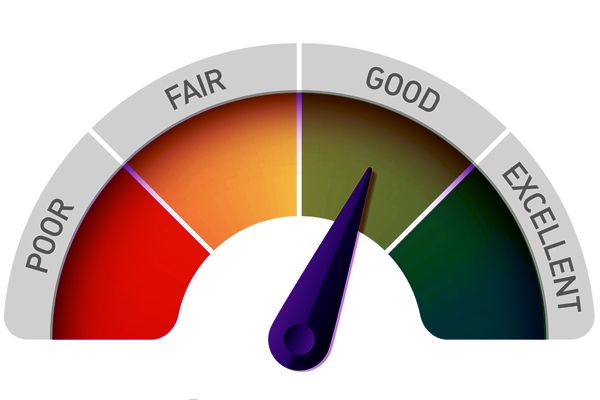Categories
Financing, Home BuyingPublished June 7, 2025
What Credit Score Do You Need to Buy a House?

Thinking about buying a home? Before you start browsing listings or touring neighborhoods, there’s one number you need to understand: your credit score.
What Is a Credit Score?
Your credit score is a number that tells lenders how likely you are to repay borrowed money. It’s based on your credit history, your past behavior with loans, credit cards, and other financial obligations. It’s a key piece lenders use to decide how much they’ll loan you, and at what cost. The score usually ranges from 300 to 850. The higher the score, the better your chances of getting approved for a mortgage with good terms. A good score can unlock better interest rates and lower monthly payments, while a low score could limit your options or delay your move.
If you're planning to buy a home, your credit score matters. It can shape your loan options, interest rate, and down payment.
Why Should You Care About Your Credit Score as a Homebuyer?
Lenders use your credit score to decide if you're a reliable borrower. A higher score can mean a lower interest rate, which saves you money over time. A lower score may still get you approved, but the loan might come with a higher rate or extra requirements.
For example, a 30-year fixed mortgage at 6.5% instead of 7.5% could save you over $200 a month on a $300,000 loan. Over time, that’s tens of thousands of dollars. That’s why many buyers work on their credit before applying for a loan.
Have you checked your score recently?

What Score Do You Need to Buy a House?
It depends on the loan. Most conventional loans require a minimum credit score of 620. FHA loans allow scores as low as 580, and some VA loans have no set minimum, though lenders usually want to see at least 620.
Here’s a quick breakdown:
-
740 or higher – Excellent. You’ll qualify for the best rates.
-
700–739 – Good. You’ll get solid loan terms.
-
660–699 – Fair. You might still qualify, but with a higher rate.
-
580–659 – Low. FHA may be your best bet.
-
Below 580 – Difficult. You’ll likely need to raise your score first.
Your score affects more than approval. It influences how much house you can afford.
What Makes Up Your Credit Score?
Your score isn’t random. It’s based on five main factors:
-
Payment history (35%) – Do you pay your bills on time?
-
Amounts owed (30%) – How much of your credit are you using?
-
Length of credit history (15%) – How long have your accounts been open?
-
Credit mix (10%) – Do you have a mix of loan and credit types?
-
New credit (10%) – Have you opened new accounts recently?
Missed payments or maxed-out credit cards can lower your score quickly. On the flip side, steady payments and low balances help your score rise.
Which of these areas needs your attention right now?
How Can You Improve Your Credit Score?
You can raise your score over time with small, consistent steps. Start with these:
-
Pay on time. Even one late payment can hurt your score.
-
Lower your credit card balances. Try to use less than 30% of your limit.
-
Don’t open too many new accounts. Each application can drop your score a little.
-
Don’t close old accounts. Older credit history helps your score.
-
Check your credit report. Look for errors and dispute them if needed.
Most people can raise their score in a few months with focused effort. If you're planning to buy in the next 6–12 months, now is the time to act.
What’s one thing you could change this week?
Where Can You Find Your Credit Score?
You can check your credit score through:
-
Your credit card provider (many offer it free)
-
Free apps like Credit Karma or Credit Sesame
-
AnnualCreditReport.com (free credit reports, not scores)
-
Mortgage lenders (they can pull your score during preapproval)
Keep in mind that scores may differ slightly across tools. Lenders often use a specific version called the FICO Score.
Checking your own score does not hurt your credit.
Can You Still Buy a Home With Bad Credit?
Yes, but the path might look different. You may need to:
-
Choose a government-backed loan like FHA
-
Make a larger down payment
-
Accept a higher interest rate
-
Work with a lender who helps buyers with credit issues
You’ll need to weigh the trade-offs. In some cases, it may make more sense to wait and improve your credit before buying. In others, it may be worth moving forward with the right strategy and lender.
Have you talked to a lender about your options yet?
Final Thought
Your credit score is one part of your homebuying plan—but it’s an important one. It can save you money, open up better loan programs, and help you feel confident when making offers.
So, how does your credit score stack up? If you’re not sure where you stand, now’s the time to find out. The sooner you know your score, the sooner you can take steps toward your new home.





